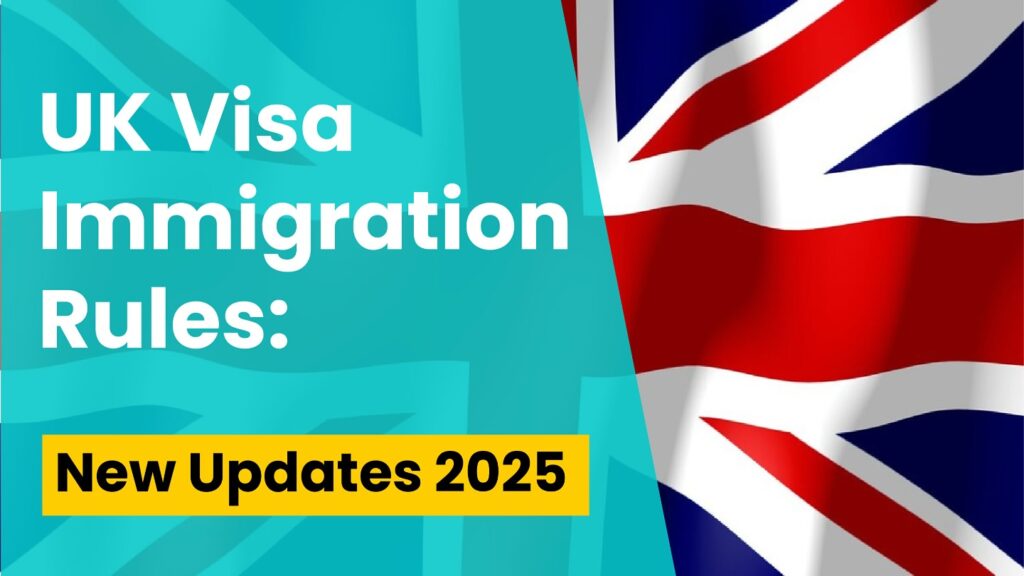Big changes are on the horizon for the UK immigration system, especially for health and education sectors, skilled workers, and overseas jobseekers. These new developments, effective April 9th, promise to reshape recruitment, salary expectations, and visa applications. So, what exactly does this mean for you? Let’s dive into the details and implications of these exciting updates!
1. New Recruitment Rules for Care Providers; A Fairer System for UK Workers:
Care Providers must prioritize local workers Before Recruiting from overseas starting April 9th, care providers in England who are looking to hire from overseas, or those switching from another visa route, will need to first prove that they’ve made an effort to recruit a worker who is resident in England. This means that before employers can consider international candidates, they must show that they have attempted to hire locally.
For those who may have faced job market struggles or had their previous recruitment license revoked, this change provides a glimmer of hope. Employers who may have previously overlooked domestic candidates are now more likely to hire from within the UK, giving priority to qualified local workers. This is a step towards making recruitment practices more inclusive, providing opportunities to those who need them most.
2. The New Minimum Salary Threshold: What It Means for Skilled Workers
The minimum salary threshold for skilled workers is set to rise from £23,200 to £25,000 per annum (or £12.82 per hour).
What does this mean for you?
Well, for starters, this aligns salaries with the UK’s growing cost of living and minimum wage standards. However, this increase could potentially impact those currently seeking sponsorship, as it might be harder to meet the new thresholds without a salary adjustment.
If you’re looking to apply or transition into a skilled worker role, be prepared for the increased salary demands. The good news? The hike is a sign that the UK is focusing on paying competitive wages to skilled talent, which could translate to higher wages across the board in various sectors.

3. Special Focus on Health & Education Roles: Higher Pay for Healthcare and Education Workers;
A major change will affect health and education professionals, including doctors, nurses, allied health professionals, and teachers. The salary thresholds for these sectors will be updated to reflect the latest national pay scales, meaning entry-level Band 3 roles will no longer meet the required salary threshold for skilled worker visas.
However, there’s a silver lining! As the NHS implemented a pay increase for these roles in October last year, once this new salary structure kicks in, Band 3 roles will qualify. Until then, though, there will be a pause on visa sponsorship for certain roles. So, if you’re in the health or education field, the salary increase will open up new opportunities—but be aware that the transition may temporarily delay some visa applications.

4. Tougher Scrutiny for Student Visas: Are You a Genuine Student?
The UK is tightening its policies around short-term Student Visas. From April 9th, caseworkers will have greater authority to refuse visa applications if they suspect the applicant is not a genuine student.
This new measure aims to prevent misuse of the student visa route, ensuring that only those truly committed to studying in the UK are granted visas. For international students, this means that the application process will be more thorough, and you may need to provide additional documentation to prove your intentions. It’s a good thing if you’re serious about your studies, but those with less clear intentions will find it more difficult to secure a visa.

What Does This Mean for You?
The changes coming into effect on April 9th are all about tightening the recruitment process, ensuring fair pay, and improving the integrity of the UK’s immigration system. These updates reflect the country’s increasing commitment to protecting domestic workers while still attracting global talent.
- For jobseekers: There are greater opportunities to secure work in the UK, but be ready for the higher salary thresholds. The focus on local recruitment means it’s more important than ever to stay competitive with your skills and experience.
- For employers: You’ll have to demonstrate that you’ve tried to hire from within the UK before reaching out to overseas candidates. If you operate in the healthcare or education sectors, be ready to comply with the updated salary requirements.
- For international students: Expect stricter visa scrutiny, but if you’re genuinely pursuing an education in the UK, these measures won’t stop you from achieving your goals.
Final Thoughts
April 9th marks a significant moment for the UK’s immigration and recruitment policies. Whether you’re an employer, a worker, or an international student, the landscape is shifting. The changes reflect the UK’s evolving priorities to balance domestic needs with international opportunities, and while there may be challenges, they also offer new opportunities for growth and fairer recruitment practices. Keep these updates in mind and prepare for a smoother transition into this new era of UK immigration!!!



